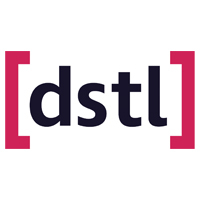We pride ourselves as being an employer of choice, where Everyone Matters promoting equality of opportunity to actively encourage applications from everyone, including groups currently underrepresented in our workforce.
UKHSA ethos is to be an inclusive organisation for all our staff and stakeholders. To create, nurture and sustain an inclusive culture, where differences drive innovative solutions to meet the needs of our workforce and wider communities. We do this through celebrating and protecting differences by removing barriers and promoting equity and equality of opportunity for all.
Data science is a broad and fast-moving field spanning maths, statistics, software engineering and communications. Data scientists will often work as part of a multidisciplinary team, using data and analytics to inform and achieve organisational goals.
In this role, you will:
- be inquisitive
- explore and visualise data
- make recommendations to address complex problems and to inform strategic and operational decision making
- use data ethically and appropriately
- be innovative and adaptable
- explore existing and new data using a range of statistical tools and techniques, such as machine learning and predictive analytics
- find patterns in data and transform them into organisational insight
The Chief Data Officer Group (CDO) consists of a large community of data scientists, government analysts (GSG, GORS, GES, GSR), mathematical modellers, epidemiologists, information specialists, and data engineers. This is a unique opportunity to help provide crucial information and insight to support the management of high-profile health incidents alongside ongoing surveillance activities. UKHSA has a strong data science community with learning opportunities, community groups and hackathon events. We predominantly code in Python and R and utilise AWS and Azure based cloud environments. The teams use Agile ways of working including software such as Confluence and Jira to manage delivery. Our Enterprise Data and Analytics Platform (EDAP) is enriched with curated, consistent, and high-quality data from existing platforms as well as providing access to a range of analytical tooling.
Job description
At UKHSA we recruit to a standardised job descriptions for data scientists. We are currently hiring to the following role:
Data Science Hub – The Data Science Hub applies innovative data science and AI techniques to advance UKHSA’s strategic goals by providing specialist support and empowering teams across UKHSA to use these capabilities effectively. We deliver impactful, well-documented, and maintainable data science and AI solutions. We work closely with scientific and analytical teams, promote best practices and continuously upskill team members with varied projects. We have deployed multiple LLM based products into production on a High-Performance Computing cluster (HPC) in key areas of focus including Hepatitis and Tuberculosis.
We also anticipate additional roles becoming available in future from which we may appoint from the reserve list of strong candidates. One such role is outlined below:
Public Health Analysis team - We are a collaborative, customer-facing group working across the full range of hazards to public health. We draw on all available data sources, particularly public health data and hospitalisation data, to deliver timely, actionable insights for senior leaders and ministers. Our work combines rigorous quantitative analysis with intelligence assessment techniques to address critical questions. These include identifying sectors and communities at heightened risk of high-consequence infections and evaluating the domestic impact of emerging health threats. We provide near real-time intelligence on epidemiological risks and transmission during periods of healthcare pressure. We also deliver analysis products of cross-cutting public health hazards to support informed, evidence-led strategic decision-making at very senior levels.
The GDD Profession consists of people who work in a digital, data or technology specialist role. They design, build and run government digital services. They are responsible for the way we find, access and use data and for the technology infrastructure which support those services. There are currently about 18,000 people working in the Profession. The Profession consists of people working within specialist communities of practice. There is a full list of roles on GOV.UK: Capability Framework
Detailed job description and main responsibilities
- Applied maths, statistics and scientific practices: You can apply analytical methods including exploratory data analysis, visualisation and statistical testing to reach accurate conclusions. You can use analytical approaches to interpret data confidently. You can summarise and describe data to support decision making.
- Data engineering and manipulation: You can select and use the most appropriate tools and techniques to manipulate and transform the data for data science products. You can collaborate with data engineers.
- Data science innovation: You can apply data science innovation in your approach to new questions, opportunities, data and techniques by using an inquisitive mind. You can improve methods and maximise insights. You can apply your data science innovation to produce creative solutions to data science problems.
- Delivering Business Impact: You can understand processes, data and strategic priorities. You can apply data science techniques to produce and present data science products. You can design solutions that meet user needs, allowing for design and ethics standards. You can work towards the successful delivery of products and establish maintenance requirements.
- Developing data science capability: You can work with data scientists and developers to share skills. You can ensure that your team can access the right technologies to create products. You can develop your data science skills. You can routinely engage with and update your continuous professional development (CPD).
- Ethics and privacy (data science): You can understand and comply with frameworks, standards and laws, including General Data Protection Regulation (GDPR), the Data Protection Act (DPA) and the Equalities Act. You can work with legal, policy and public colleagues, government departments and ministers to clearly communicate ethical issues and ideas. You can store and treat data appropriately.
- Programming and build (data science): You can use programming tools to undertake analysis and create scalable data products. You can identify and reuse common approaches and code. You can document and test code to ensure its quality. You can understand the organisation's tech stack and get code into production by working with developers and architects.
- Understanding product delivery: You can use different product delivery methods (such as Agile) and phases to make decisions. You can work collaboratively with other professionals. You can use knowledge of product management to deploy data science products into the organisation. You can show data science is used effectively to support products and services.
Person specification
Essential Criteria
- A first- or second-class honours degree in a numerate discipline, computer science or IT equivalent which demonstrates core statistical skills; OR have worked in a statistical/data science field and are able to demonstrate continuous professional development in statistics/data science at the same level as a foundation degree/HND (Level 5)
- Strong proficiency in applying analytical and statistical techniques using a variety of software/codebases including practitioner level knowledge of coding including version control, SQL, R and/or Python or other programming languages relevant to data science.
- Experience in wrangling, cleaning and preprocessing data for readiness for analysis.
- Understanding of Machine Learning approaches including regression, classification and clustering using train-test approaches and evaluating performance with metrics such as precision, recall and F1
- Working independently and in collaboration with others to deliver multiple concurrent projects,
- Highly proficient in organisational skills with proven ability to schedule work to meet tight and challenging deadlines, and to manage complex, multiple tasks (verbal and written)
- Ability to construct and effectively communicate data stories using data visualisation techniques and narrative storytelling with an understanding the caveats and limitations of the data.
- Understanding of quality assurance, data validity, reliability and confidentiality issues and statutory information governance requirements
- Well-developed problem-solving skills and a flexible approach to developing solutions including stages between user requirements to product delivery.
- Excellent interpersonal skills with the ability to influence, communicate, present and capture requirements from technical and non-technical stakeholders.
- Able to make independent decisions on tasks and projects; ability to escalate decisions with recommendations.
Apply before 11:55 pm on Friday 11th July 2025













